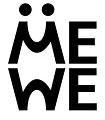-
- Assign a menu in Theme Options > Menus WooCommerce not Found
- Newsletter
Menu

ME&WE Coaching
BlockTree is proud to have ME&WE Coaching a companion to greening the planet. You can see estimates for the next 5 years. Or see the full information in the NFT below.
500 trees
Donated trees
Equivalent to greening
27 apartments
400 m²
Area will be covered
Create economy and jobs for
2 people
1.26 tons
CO² absorbed
Eliminate exhaust gas from
57 cars
1.36 kg
Fine dust absorbed
Provide clean air for
1700 apartments
Report created by BlockTree
Why does
ME&WE
invest in climate change solutions?
ME&WE Coaching believes that extraordinary times require extraordinary stories. With internationally recognized skills and expertise, we use the power of questions and personal awareness to create uniquely meaningful, memorable and strategic changes in lives. customer experience, putting people at the center of personal experiences to drive behavior change and deliver real impact.
Today, the world has suffered the effects of biodiversity loss and climate change. Through afforestation, ME&WE Coaching aspires to create changes that have a meaningful impact on the environment. The reforestation will contribute to biodiversity and help provide habitat for endangered species, create jobs and support local economic development.
ME&WE Coaching is just a fork in the road but we do believe that our partnership with BlockTree in the very first stages of the project will bring disruptive solutions and positive impact at a large scale.
Contact ME&WE Coaching
Interested in the project?
Join us in planting trees, to help improve air quality and stop climate change.
Frequently asked questions
BlockTree works with planting organizations/individuals to verify their programs. The initial launching project of the platform happened with a local family in Nui Thanh District, Quang Nam Province with sponsorship from Catalyst.
BlockTree platform was built to be easily used by any planting organization looking to develop, operate, and scale their reforestation projects anywhere. In parallel, the Sponsors can supervise the progress with transparency and receive e-certification as NFT issued by BlockTree.
Approximately 10% of the funding for tree planting goes to protecting the forest for the initial 3-5 years. This is the most vulnerable period in tree life. BlockTree also establishes buffer pools to cover any potential abnormal losses.
But BlockTree does not simply allocate funds. They work closely with the local communities/families in charge to showcase the great value of newly planted forests. Through education and by involving them in the monitoring and reporting process, they quickly develop a deep sense of ownership and pride over the trees, leading to effective management in the long run, keeping forests not just alive, but keeping them thriving.
Carbon accounting is highly challenging and accounting for carbon sinks is still an evolving practice till now.
Our current estimates are based on the estimation calculation from https://www.itreetools.org/. The data is estimated with the same species & climate conditions. The following variables are taken into consideration when we estimate carbon sequestration rate: i) species planted (including maturity age of the tree species), ii) forest type, iii) region and iv) average tree survivability.
When primary data are not available, as a general rule of thumb, BlockTree uses a conservative set of secondary data, proxy data, or assumptions to ensure that we are not overestimating the carbon sequestration rate resulting from our projects. Moreover, we use data collected at the site-level to validate or adjust our estimations and we will continue to improve our estimation method by building partnerships with academics in this space.
Source: Jones, Trevor G., Harifidy Rakoto Ratsimba, Lalao Ravaoarinorotsihoarana, Garth Cripps, and Adia Bey. “Ecological variability and carbon stock estimates of mangrove ecosystems in northwestern Madagascar.” Forests 5, no. 1 (2014): 177-205. Benson, Lisa, et al. Mangrove Carbon Stocks and Ecosystem Cover Dynamics in Southwest Madagascar and the Implications for Local Management, Multidisciplinary Digital Publishing Institute, 31 May 2017, https://www.mdpi.com/1999-4907/8/6/190/pdf.